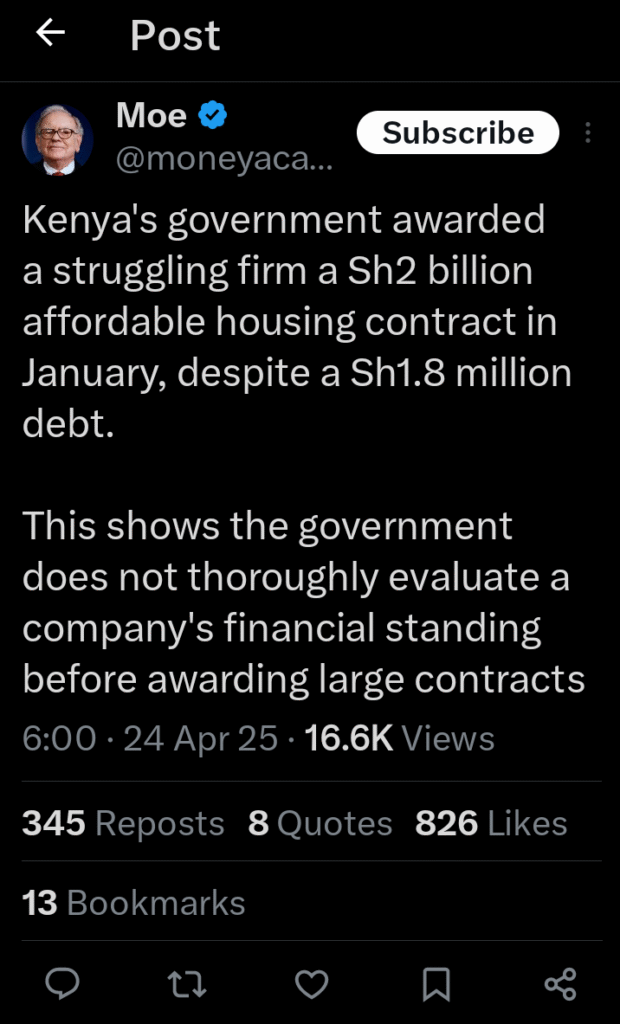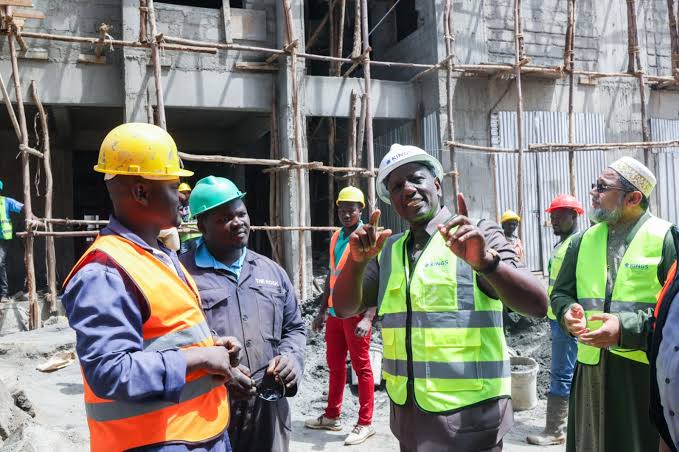Reports have emerged that the government awarded a Sh2 billion contract under the affordable housing program to a firm that was allegedly struggling with a Sh1.8 million debt.
This raised serious concerns about the kind of financial checks being done before handing out such big contracts. If this information is true, then it shows a worrying lack of proper vetting and could be a sign of deeper problems in how public funds are being used.
The affordable housing program is supposed to help ordinary Kenyans by building low-cost homes while also creating jobs and pushing economic growth. But if such projects are given to companies that are not financially stable, then the entire plan is at risk of falling apart.
The affordable housing plan is one of the biggest projects in President Ruto’s Bottom-Up Economic Transformation Agenda. It aims to put up around 250,000 homes every year to meet the growing housing needs in cities and towns.
Many Kenyans cannot afford the houses currently in the market, and the program was supposed to change that. However, the way some of these contracts are being awarded could defeat the whole purpose.
Giving such a huge contract to a company with pending debts of over a million shillings calls into question the kind of background checks done by government officials. If a company is already drowning in debt, how can it be expected to handle a Sh2 billion project efficiently?

When contracts are awarded without serious checks, it not only risks delays and wastage of money, but it also lowers public confidence. People start to feel that deals are being made based on connections instead of merit.
This is especially painful for citizens who are being forced to pay housing levies out of their salaries. If the money is not going to the right hands, the project may fail and the trust of the people will be lost. We’ve seen before how poorly managed housing projects end up with unfinished buildings, empty promises, and no results.
There are already laws like the Public Procurement and Asset Disposal Act that are supposed to guide how contracts are awarded.
Agencies like the Public Procurement Regulatory Authority have also been put in place to make sure everything is done transparently. But all these efforts mean nothing if government departments still ignore basic financial checks. It’s not just about ticking boxes.
Contractors need to prove they have the money, skills, and experience to complete the job. Otherwise, Kenyans will continue to suffer due to poor planning and mismanagement.
The housing deficit in Kenya is huge. It’s growing every year by around 200,000 units and is already at over 2 million. The government has spent billions since 2018 trying to solve this problem.
But if those billions are handed over to firms that cannot even settle small debts, then the program will keep missing its targets. For the affordable housing initiative to succeed, Kenya must do better. The government needs to be more careful, more transparent, and more accountable.
Kenyans deserve homes they can afford, and that dream should not be stolen by poor decisions and careless procurement.





















Add Comment